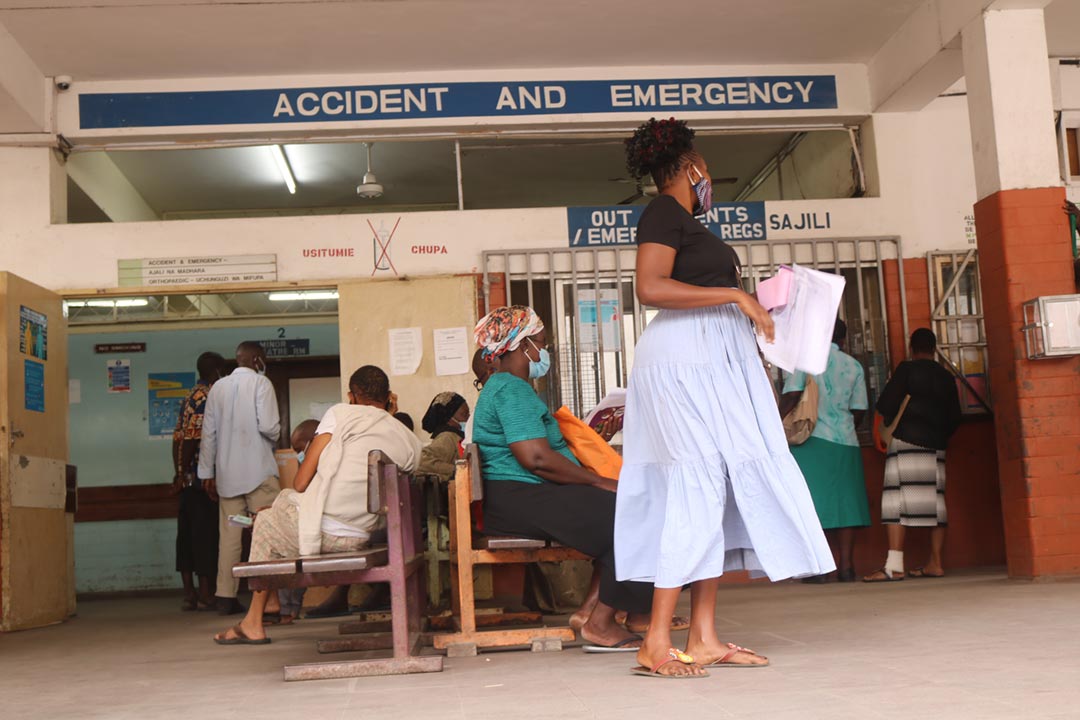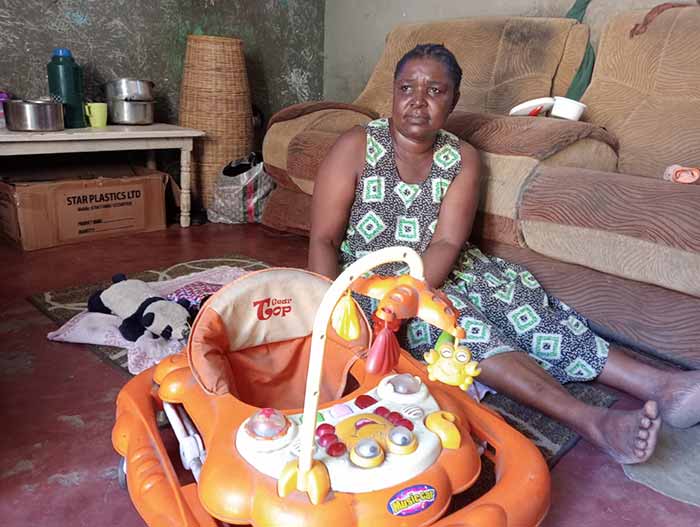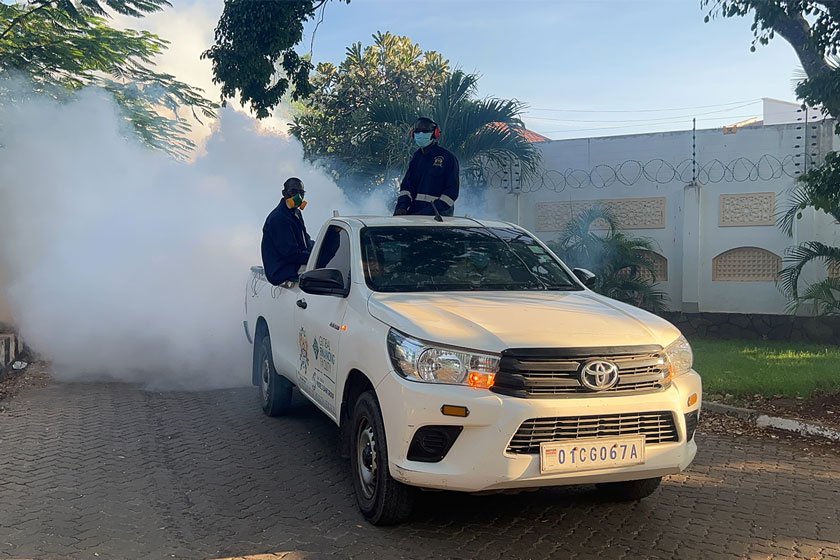Curbing rotavirus in coastal Kenya
Armed with vaccines, soap, and water, Mombasa is fighting back against the deadly diarrhoeal infection.
- 6 September 2023
- 6 min read
- by Diana Wanyonyi

Beatrice Mwajuma, the owner of a daycare centre in Mishomoroni, a Mombasa county suburb, was seated on the floor wiping and cleaning toys when VaccinesWork visited. The facility had been shut down by the health department in April, who suspected that an outbreak of the life-threatening diarrhoeal disease, rotavirus, had spread there.
Months later, Mwajuma remained puzzled. She ran the daycare by herself, she explained. Her clients were children below the age of four years. Before the outbreak, she used to take care of six children, from the morning until their parents or guardians picked them up again.
"During our sensitisation process, many parents or guardians were not aware of the virus. Some were reluctant to let their children be vaccinated. It took us time to convince them, and I am glad it worked."
– Zena Katana, community health volunteer
"I was taking care of them, teaching them how to use the toilet and teaching them how to speak. They used to come with their own packed food. One day there was a child who fell ill and was taken to hospital by the parents, but when he was taken from here he was well. Now I can't tell what happened. After some time, officials from the health department came and closed down my business. They investigated my tap water and I told them I don't have a water storage tank so I took them to where I buy mineral water," said Mwajuma.
Rotavirus is the leading cause of severe, dehydrating diarrhoeal disease in infants and young children worldwide. Mombasa county, on Kenya's coast, has suffered recurrent outbreaks recently, with ten children reported to have died in April.
Vaccine crunch
The virus spreads through the environment via contamination from infected faeces, making good hygiene vital to its containment. But other developments, probably unknown to Mwajuma, had made this year a year of elevated risk in Kenya.
In 2022, Kenya was among seven African countries hit by an unforeseen shortage of rotavirus vaccine doses. All of those countries faced consequent setbacks to their rotavirus immunisation programmes, with Kenya seeing a 68% decline in coverage.
The vaccine supply issues resolved, but the immunisation gap that had already opened paved the way for the outbreak of the diarrhoeal virus, Mombasa county Vaccine and Immunisation Coordinator Isaac Jewa explained.
"By the start of 2023, we witnessed the outbreak of the disease, and that time is when we received a new supply of vaccine from the National Vaccines and Immunization Program," Jewa said. "We switched from Rotarix vaccine – which was given two doses to a child – to Rotavac vaccine, which is administered three doses per child. The vaccine is the same; the only difference is the dosage. A newborn is given the vaccine when he or she reaches six weeks, ten weeks and 14 weeks."

Credit: Diana Wanyonyi
Rotavirus outbreaks are directly caused by poor sanitation and hygiene and contaminated drinking water, the health official explained. The county is fighting back on all fronts. "We are educating people on the need of maintaining cleanliness and keeping their environment clean. We are also chlorinating boreholes and water that people are using, and lastly, we are enhancing vaccination."
"We were afraid and devastated"
Triza Ochieng, a pharmacist and nurse, is employed at a chemist's shop attached to a clinic in Junda, the area that Mombasa governor Abdulswamad Sharrif Nassir told media was the cradle of the April outbreak. She was busy serving clients when VaccinesWork stopped by. While she worked, her third-born son played, greeting his mother's clients.
He had been among the many babies diagnosed with rotavirus early this year, but luckily – through the quick intervention of health providers and medics in Mombasa – he recovered well. He was then one year and four months old. Ochieng recalled that he vomited "endlessly".
Have you read?
"My baby likes eggs so much, so I decided to prepare some for him. He vomited – I thought he did not feel like eating, so I gave him porridge. He vomited again. The following day he started to have diarrhoea, the faecal colour was yellow and it smelled very bad.
"When he drinks water, he vomits it. It was difficult for us – the baby was very uncomfortable, and he was crying and rolling on the floor with his stomach. We were afraid and devastated. I put him on a drip so he could stop vomiting, but it continued. I gave him some medicines but he never responded to them. As a family, we were crying, it was bad. Luckily, community health volunteers were moving from door to door to alert and educate the public about rotavirus. That is when they informed me that my son was infected. We were referred to the hospital. That is when our son was put on drugs and he started responding well," she recounted.
Beating back the virus
Though the virus spread quickly, the county has been able to respond by scaling up public sensitisation, tasking the public health department to conduct vaccination exercises in all public hospitals – Jewa explains the vaccine is also available via private providers – and deploying nurses and community health volunteers to help with the crisis.
Zena Katana is one of the community health volunteers in Junda, who went house to house with her colleagues to sensitise the public on the need for rotavirus vaccination for children under five. "I am happy to see many children are brought to Junda dispensary so that they can be given rotavirus vaccine," she said. "During our sensitisation process, many parents or guardians were not aware of the virus. Some were reluctant to let their children be vaccinated. It took us time to convince them, and I am glad it worked."
Already more than 8,000 children have been vaccinated in Mombasa county after the stocks of the vaccine became available this year. That number, however, falls short of the county ambitions, according to Jewa. "We have not met our targeted percentage coverage of vaccinated children. We are targeting to vaccinate 9,000 children every month."
The health department is following up on the children who are yet to be vaccinated, and keeping tabs on children who are under the vaccination programme.
Meantime, in some areas of the county, youths have been deployed as casual labourers to clean the streets, while a campaign to chlorinate wells and boreholes continues.
And at Coast General Teaching and Referral Hospital, the largest public facility in coastal Kenya, situated in the heart of Mombasa, soap and water are a vital adjunct to good medicine.
For Agnes Mukhwana, one of the hospital's cleaners, the day begins in the wee hours of the morning, when there are barely any patients or visitors populating the corridors.
She has worked here for more than seven years, and understands, more than most, the importance of good hygiene. "Many people come to hospital on a daily basis, so to be safe, we ensure that we do thorough cleaning inside the wards, corridors, pathways and also around sitting areas. We use clean water, soap, and disinfectant," she said.
More from Diana Wanyonyi
Recommended for you







